Dividing Property Fairly in a New Jersey Divorce
Property division during divorce isn’t just about numbers—it’s about your financial future. At our firm, we work with clients throughout Bergen County and Northern New Jersey to make sure marital property is divided fairly and thoroughly under state law. As experienced NJ property division lawyers, we understand how to navigate everything from simple cases to high-asset disputes involving businesses, real estate, and retirement accounts.
New Jersey follows a process called
equitable distribution, which focuses on a fair—not necessarily equal—split of assets. Whether you’re dealing with a cooperative split or a contested division, we make sure every asset is accounted for and your rights are protected.
Understanding Equitable Distribution in New Jersey
In New Jersey, assets are not automatically split 50/50. Instead, the law requires an
equitable distribution—which means the division must be fair based on your individual circumstances.
The court considers factors such as:
- Length of the marriage
- Each spouse’s income and earning potential
- Contributions to the marriage (including homemaking and childcare)
- Age and health of each spouse
- Standard of living established during the marriage
Only marital property is subject to division. That typically includes anything acquired after the wedding—like your home, vehicles, joint accounts, investments, or retirement savings. Separate property, such as pre-marital assets, inheritances, or gifts, usually stays with the original owner, unless it was mixed with joint assets.
How Property Division Works in a Divorce Case
No two divorces are the same, but the property division process generally follows a few key steps:
- Identify all assets and debts
– including homes, retirement accounts, credit cards, and business interests.
- Value each item
– sometimes requiring appraisals or financial experts, especially in high-asset divorces.
- Negotiate or litigate
– couples may agree on terms privately or present their cases in court if an agreement isn’t reached.
- Finalize through a Property Settlement Agreement (PSA)
– this document becomes part of your divorce judgment.
We’re known for being extremely thorough in uncovering hidden or undervalued assets—an essential skill in cases involving closely held businesses, complex investments, or financial misconduct.
What Gets Divided? Common Assets in Divorce
Here are some of the assets and debts we help clients divide:
- Real Estate
Including primary residences, vacation homes, and rental properties
- Retirement Accounts
Such as 401(k)s, pensions, and IRAs (often divided through QDROs)
- Business Interests
For clients who are self-employed or part owners in a business
- Bank & Investment Accounts
Including stocks, savings, and brokerage funds
- Personal Property
Cars, valuables, household items
- Debt & Liabilities
Like mortgages, credit card balances, and personal loans
We help you evaluate what’s on the table—and what you may be entitled to—so nothing gets left behind.
Formalizing the Terms: Property Settlement Agreements (PSAs)
Once the division of assets is agreed upon or decided by the court, it’s documented in a
Property Settlement Agreement. This legally binding contract outlines who keeps what and how financial matters are resolved. It may also include terms on alimony or spousal support, which often overlap with property division.
Our Strategy for Fair & Focused Advocacy
We represent clients on both sides of the property line—from high earners seeking to protect what they’ve built, to spouses who’ve taken time off work to raise children and need a fair share of marital assets. Our approach is methodical, compassionate, and aggressive when needed.
If a fair agreement can’t be reached, we’re prepared to litigate. If your spouse isn’t being transparent about assets, we dig deeper. And if your financial picture is complex, we work with trusted experts to provide accurate valuations that stand up in court.
Serving Hackensack & Beyond
We work with clients across
Hackensack, Englewood, Teaneck,
and throughout Northern New Jersey. Whether you’re just starting the divorce process or need help enforcing an agreement, we’ll guide you through every step with clarity and care.
FAQs About Property Division in New Jersey
Do we split everything 50/50 in a New Jersey divorce?
Not necessarily. New Jersey uses equitable distribution, which means a fair—but not always equal—division of marital property based on various factors.
What counts as marital property?
Marital property generally includes anything acquired during the marriage—homes, income, retirement accounts, vehicles, and shared debt.
Can I keep property I owned before the marriage?
Possibly. Property you owned before the marriage may be considered separate, but it depends on how it was used or combined during the marriage.
What if my spouse is hiding assets?
We use formal discovery, subpoenas, and financial experts to uncover hidden or undisclosed assets. Full transparency is required by law.
How is a business divided in divorce?
Businesses may be valued and divided, or one spouse may buy out the other. We work with appraisers to determine a fair value.
What is a Property Settlement Agreement?
A PSA is a written contract that finalizes the division of property and other financial terms in your divorce. Once signed, it’s enforceable like a court order.
Get a Clear Plan for Dividing Your Property
Let’s talk about your goals and get a better picture of what’s at stake. Contact us to schedule a consultation with an experienced
equitable distribution attorney in New Jersey.

